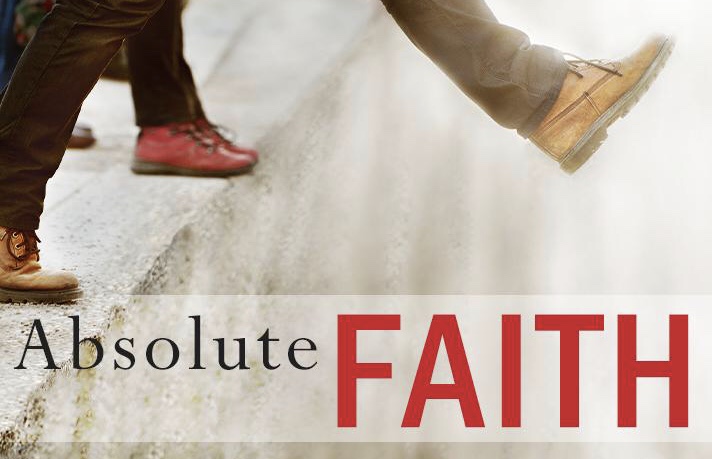
Absoluteness and certainty are a hallmark of the moral and spiritual atmosphere of our culture, shaping every action and decision. The subject of absolute faith has recently addressed by two of my “spiritual directors”, Richard Rohr and Richard Beck. I found them to be helpful, perhaps, you will also.
But one thing I took from this was a big fear I’ve now got about people of absolute faith. I always thought faith of itself was – could only be a positive thing. Everyone talks about the importance of having faith. Well, these guys had faith, absolute faith. And there’s one really desperately upsetting…ideologically, there’s one desperately particularly upsetting moment where – in the book – where I talk about how Himmler and Hoss most admired, as prisoners, Jehovah’s Witnesses. They pointed to them and said, see that faith? That’s the kind of faith we need in our führer – absolute, unshakable faith. (from an interview with Laurence Rees, Auschwitz: A New History)
faith.?Faith is a kind of knowing that doesn’t need to know for certain and yet doesn’t dismiss knowledge either. With faith, we don’t need to obtain or hold all knowledge because we know that we are being held inside a Much Larger Frame and Perspective. As Paul puts it, “For now we see in a mirror dimly, but then we shall see face to face. Now I know only in part; then I will know fully, just as I have been fully known myself” (1 Corinthians 13:12). It is a knowing by?participation with—instead of an?observation of from a position of separation. It is knowing subject to subject instead of subject to object.
Richard Rohr
It is amazing how religion has turned the biblical idea of faith around 180 degrees—into a need and even a right to certain knowing, complete predictability, and perfect assurance about whom and what God likes or doesn’t like. Why do we think we can have the Infinite Mystery of God in our quite finite pocket? We supposedly know what God is going to say or do next, because we think our particular denomination has it all figured out. In this schema, God is no longer free but must follow? our ?rules and?our? theology. If God is not infinitely free, we are in trouble, because every time God forgives or shows mercy, God is breaking God’s own rules with shocking (but merciful) freedom and inconsistency!
We do need?enough knowing?to be able to hold our ground. We need a container and structure in which we can safely acknowledge that we do know a bit, in fact just enough to hold us until we are ready for a further knowing. In the meantime, we can happily exist in what some have called? docta ignorantia?or “learned ignorance.” Such people tend to be very happy and they also make a lot of other people happy.
Ricard Beck